Theology
The Venerable Female-martyr Febronia [Fevronia]
8. July 2018 - 14:02Febronia was the daughter of Prosphorus, a senator from Rome. In order to avoid marriage with a mortal man, Febronia betrothed herself to Christ and was tonsured a nun in the east, in the country of Assyria, in a convent where her aunt Bryaena was abbess. Lysimachus, the son of a nobleman, desired to wed Febronia but since Emperor Diocletian suspected him to be a secret Christian, he sent Lysimachus to the east with his uncle Silenus to apprehend and kill Christians. Silenus was as cruel as a beast and exterminated Christians everywhere without mercy. Lysimachus, on the contrary, spared the Christians wherever he could and hid them from his beast-like uncle. Making Palmyra a wasteland of Christians, Silenus came to the town of Nisibis close to which was a convent with fifty ascetics among whom was Febronia.
Holy Apostle Bartholomew
24. June 2018 - 13:07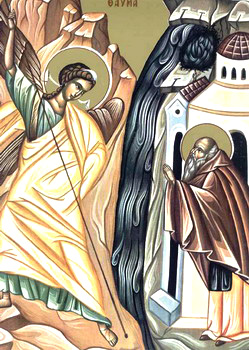 The Holy Apostle Bartholomew was born at Cana of Galilee and was one of the Twelve Apostles of Christ. After the Descent of the Holy Spirit on the Day of Pentecost, it fell by lot to the holy Apostles Bartholomew and Philip (November 14) to preach the Gospel in Syria and Asia Minor. In their preaching they wandered through various cities, and then met up again. Accompanying the holy Apostle Philip was his sister, the holy virgin St Mariamnne.
The Holy Apostle Bartholomew was born at Cana of Galilee and was one of the Twelve Apostles of Christ. After the Descent of the Holy Spirit on the Day of Pentecost, it fell by lot to the holy Apostles Bartholomew and Philip (November 14) to preach the Gospel in Syria and Asia Minor. In their preaching they wandered through various cities, and then met up again. Accompanying the holy Apostle Philip was his sister, the holy virgin St Mariamnne.
Traversing the cities of Syria and Myzia, they underwent much hardship and tribulations, they were stoned and they were locked up in prison. In one of the villages they met up with the Apostle John the Theologian, and together they set off to Phrygia. In the city of Hieropolis by the power of their prayers they destroyed an enormous viper, which the pagans worshipped as a god. The holy Apostles Bartholomew and Philip with his sister confirmed their preaching with many miracles.
Metropolitan Kallistos and The Wheel
20. June 2018 - 10:06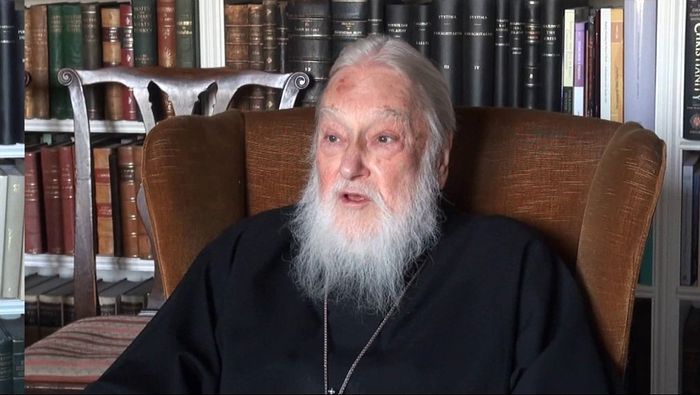 I owe a great debt of gratitude to Metropolitan Kallistos—or at least to Timothy Ware. I read his book The Orthodox Church long ago and it was an important part of my conversion to Orthodoxy. I still have the somewhat battered volume on my bookshelf, a gold bishop’s mitre on the cover set off against a black background. That was before Timothy became Kallistos and parenthesized his surname, and I have followed his ecclesiastical promotion and the consequent name changes as he became a priest, then an archimandrite, and then a bishop, and then finally a metropolitan.
I owe a great debt of gratitude to Metropolitan Kallistos—or at least to Timothy Ware. I read his book The Orthodox Church long ago and it was an important part of my conversion to Orthodoxy. I still have the somewhat battered volume on my bookshelf, a gold bishop’s mitre on the cover set off against a black background. That was before Timothy became Kallistos and parenthesized his surname, and I have followed his ecclesiastical promotion and the consequent name changes as he became a priest, then an archimandrite, and then a bishop, and then finally a metropolitan.
Translation of the relics of St Nicholas the Wonderworker from Myra to Bari
21. May 2018 - 15:55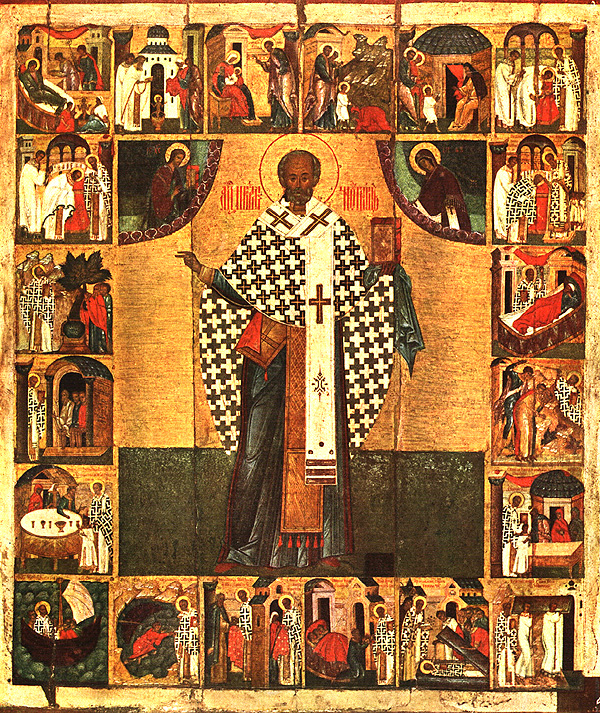 The Transfer of the Relics of Saint Nicholas to Bari in Italy. His Life is found under December 6.
The Transfer of the Relics of Saint Nicholas to Bari in Italy. His Life is found under December 6.
In the eleventh century the Byzantine Empire was going through some terrible times. The Turks put an end to its influence in Asia Minor, they destroyed cities and villages, they murdered the inhabitants, and they accompanied their cruel outrage with the desecration of churches, holy relics, icons and books. The Mussulmen also attempted to destroy the relics of Saint Nicholas, deeply venerated by the whole Christian world.
Holy Queen Tamar (†1213)
16. May 2018 - 9:03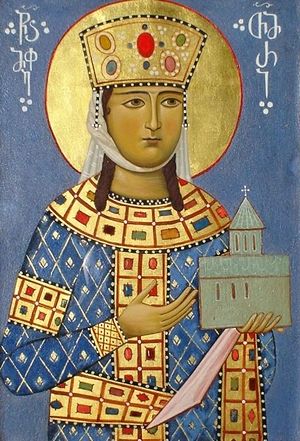 In 1166 a daughter, Tamar, was born to King Giorgi III (1155–1184) and Queen Burdukhan of Georgia. The king proclaimed that he would share the throne with his daughter from the day she turned twelve years of age.
In 1166 a daughter, Tamar, was born to King Giorgi III (1155–1184) and Queen Burdukhan of Georgia. The king proclaimed that he would share the throne with his daughter from the day she turned twelve years of age.
The royal court unanimously vowed its allegiance and service to Tamar, and father and daughter ruled the country together for five years. After King Giorgi’s death in 1184, the nobility recognized the young Tamar as the sole ruler of all Georgia. Queen Tamar was enthroned as ruler of allGeorgia at the age of eighteen. She is called “King” in theGeorgian language because her father had no male heir and so she ruled as a monarch and not as a consort.
At the beginning of her reign, Tamar convened a Church council and addressed the clergy with wisdom and humility: “Judge according to righteousness, affirming good and condemning evil,” she advised. “Begin with me — if I sin I should be censured, for the royal crown is sent down from above as a sign of divine service. Allow neither the wealth of the nobles nor the poverty of the masses to hinder your work. You by word and I by deed, you by preaching and I by the law, you by upbringing and I by education will care for those souls whom God has entrusted to us, and together we will abide by the law of God, in order to escape eternal condemnation.… You as priests and I as ruler, you as stewards of good and I as the watchman of that good.”
Prophet Jeremiah
14. May 2018 - 10:19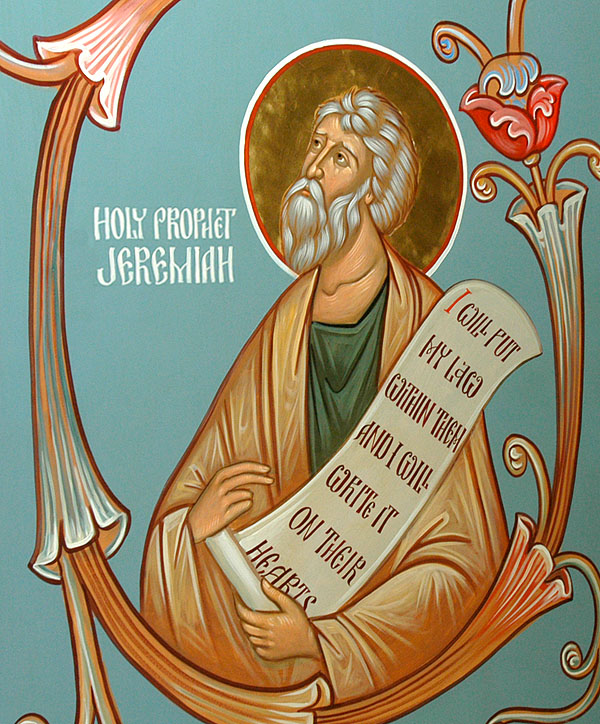 The Holy Prophet Jeremiah, one of the four great Old Testament prophets, was son of the priest Helkiah from the city of Anathoth near Jerusalem, and he lived 600 years before the Birth of Christ, under the Israelite king Josiah and four of his successors. He was called to prophetic service at the age of fifteen, when the Lord revealed to him that even before his birth the Lord had chosen him to be a prophet. Jeremiah refused, citing his youth and lack of skill at speaking, but the Lord promised to be always with him and to watch over him.
The Holy Prophet Jeremiah, one of the four great Old Testament prophets, was son of the priest Helkiah from the city of Anathoth near Jerusalem, and he lived 600 years before the Birth of Christ, under the Israelite king Josiah and four of his successors. He was called to prophetic service at the age of fifteen, when the Lord revealed to him that even before his birth the Lord had chosen him to be a prophet. Jeremiah refused, citing his youth and lack of skill at speaking, but the Lord promised to be always with him and to watch over him.
He touched the mouth of the chosen one and said, “Behold, I have put My words into your mouth. Behold, I have appointed you this day over nations and kingdoms, to root out and to pull down, to destroy and to rebuild, and to plant” (Jer. 1:9-10). From that time Jeremiah prophesied for twenty-three years, denouncing the Jews for abandoning the true God and worshipping idols, predicting sorrows and devastating wars. He stood by the gates of the city, and at the entrance to the Temple, everywhere where the people gathered, and he exhorted them with imprecations and often with tears. The people, however, mocked and abused him, and they even tried to kill him.

